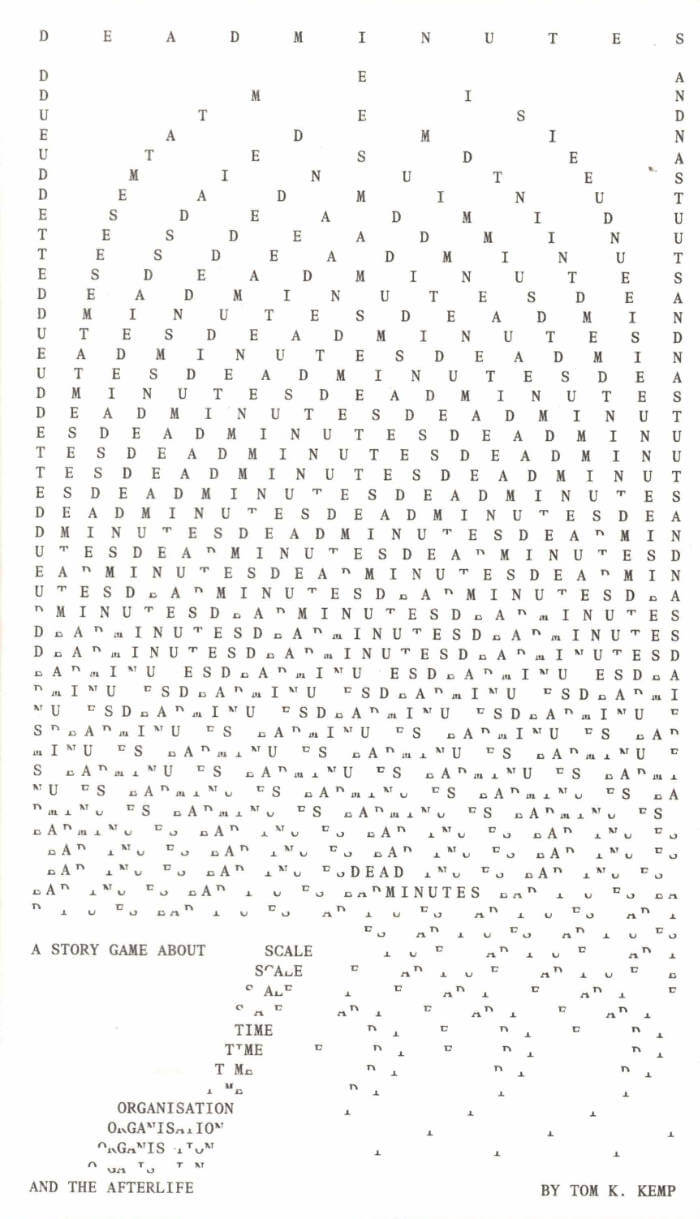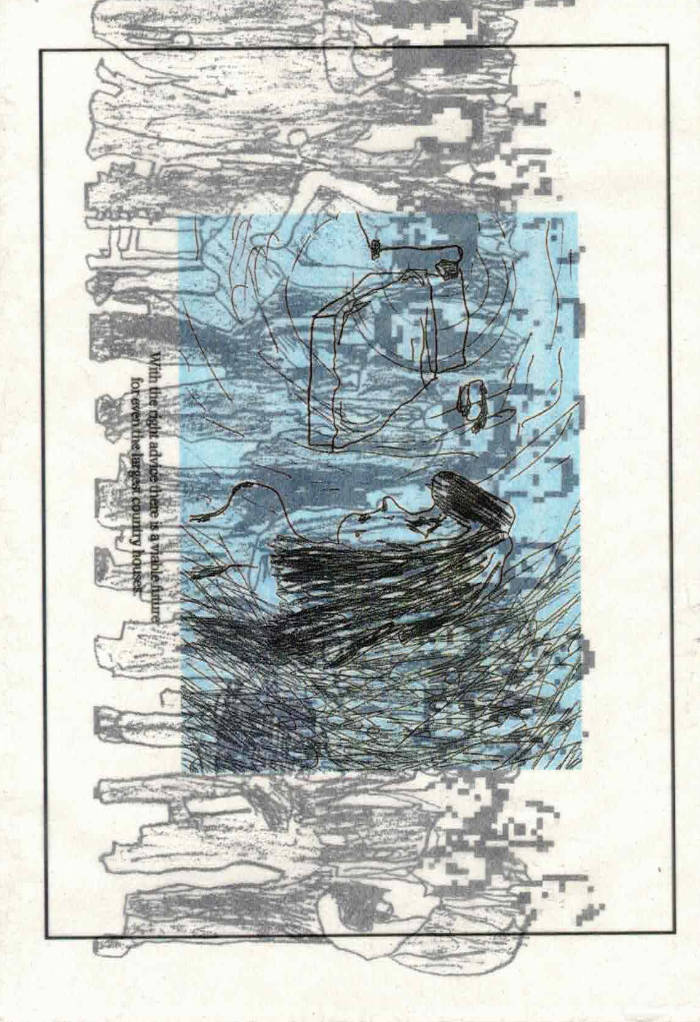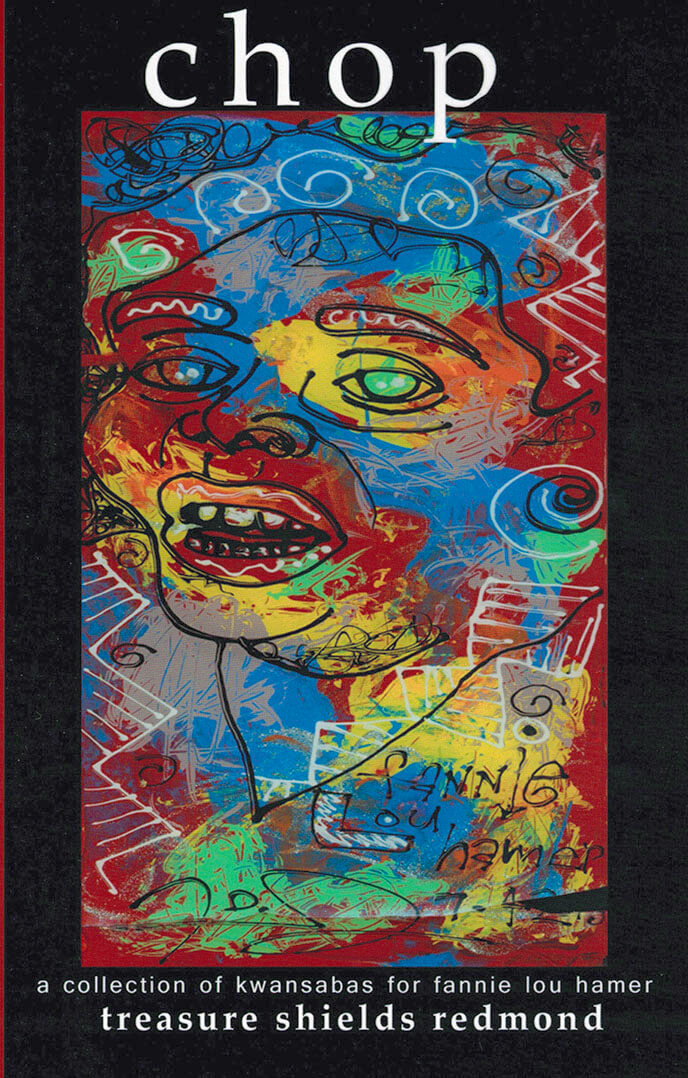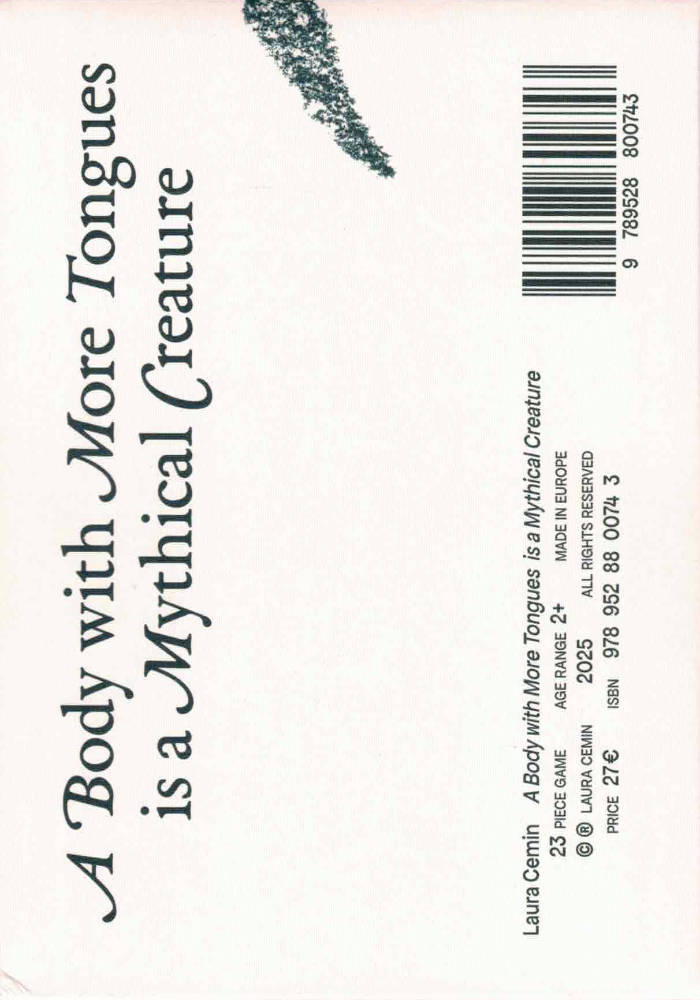
Economy as Intimacy (vol.1)
A series of choreopoems by Eric Peter. Published at the occasion of 'Assemblages of Intimacy' a group exhibition in a Tale of a Tub, Rotterdam in 2018.
Language: English

A series of choreopoems by Eric Peter. Published at the occasion of 'Assemblages of Intimacy' a group exhibition in a Tale of a Tub, Rotterdam in 2018.
Language: English

Dead Minutes is a storytelling game about systemic change in an undesirable afterlife. You, the players, will decide what this hell, underworld or land of the dead is like, what its problems are, how change happens there, and what the complications might be when altering something so big, involving so many dead people, over so much time. It’s a game about impossible seeming actions at impossible seeming scales, making difficult choices, and dealing with unexpected outcomes.
The first half of this book gives you everything you need to play a session of Dead Minutes, which takes 2-5 hours with 3-6 people.
The second half features an essay by Patricia Reed that expands on the concepts of heuristic fictions and vital zombies in relation to the afterlife, and a series of afterlife generating 'seeds' contributed by different types of writers - a demonic boardroom presentation by writer and art critic Habib William Kherbek, a ritual from horror game designer Samuel Clarice Mui Shen Ern, a premise by Arthur C Clarke award winning author Chris Beckett, and a letter from Selma Selman.

Real Estate Portfolio by Claire Barrow
7 panel concertina + covers / total of 16 pages
9.6 × 14 cm folded / 98 cm extended
Riso 250gsm recycled offset exterior, litho 135gsm recycled offset interior
Glassine sleeve, digitally printed on the front & back
Self-published edition of 300, signed by the artist
Constructed in the UK (£0.016 per cm²)
The zine was drawn in one session using the right wrong hand.

chop is a collection of poems that center on the life and work of proto-feminist and civil rights activist, Fannie Lou Hamer.
A Mississippi native, Treasure Shields Redmond is a poet, speaker, diversity and inclusion coach, and social justice educator. In 2016 she founded her company, Feminine Pronoun Consultants, LLC. Even though Treasure is completing a PhD in English Literature and Criticism, is a published writer, gifted veteran educator, and has spoken on stages all over the U.S. and in Europe, she uses her humble beginnings in the federal housing projects in Meridian, Mississippi to fuel her passion for helping college-bound families navigate college admissions painlessly and pro tably, and o ering perceptive leaders creative diversity and inclusion facilitation. Additional information on her poetry, writing, and multidimensional practice are available at: www.FemininePronoun.com.

The Fair Kin Arts Almanac is made with the voices of more than 130 artists, writers, and activists spinning their thoughts and experiences into 12 chapters around a year. Surprising perspectives, recipes, sound practices, and reflections around ecology, parenthood, the need to rest in a life that never stops, the urgency for space and infrastructure for artists, redistribution of resources, accessibility of the sector, artistic involvement in politics and much more.
The FAIR KIN ARTS ALMANAC is a circular book, filled with perspectives, recipes, astrological wisdom, ideas, games, proposals and in depth reflections around topics of social political relevance. For the Arts and beyond.
The book was edited by a team of 13 editors that in turn each worked with artists, art workers, writers and academics. Chapters range from politics, making space, education, parenthood, accessibility, ecology, mutuality, rest, migration, redistribution, property & open source and relationality.

A Body with More Tongues is a Mythical Creature is a small publication accompanied by a set of playing cards. It builds upon Paper Notes and Pinecones, a solo exhibition I presented in May 2024 at HAM Gallery, Helsinki, and marks the culmination of my research into how living in a foreign country reshapes the way we move and physically relate to the world around us.
Contributors: Chen Nadler, Daniela Pascual, Francesca Berti, Giorgio Convertito, Giorgia Lolli, Isabella Covertino, Tashi Iwaoka, and others
Edited by: M. Winter
Music by: Jenny Berger Myhre
Illustrations by: Valentina Černiauskaitė
Design by: Ran-Re Reimann
Supported by: Kone Foundation, Nordic Culture Point, and the Finnish Art Society


The latest collection from prolific American poet Clark Coolidge, who has often been associated with the Language School and the New York School but has truly forged a unique style. A life-long jazz drummer, his poems can be approached as improvisational compositions with strange arrangements of words, statements, and sounds that are vibrant, frequently hilarious, and jarring. His upended syntax and surprising associations reflect a world awash in information; an advanced civilization dealing with ever more rapid change. His poems are explorations into the possibilities of language. This kind of work could, serendipitously, lead to new patterns of thinking, new definitions, new meanings, perhaps even new ways of dealing with old problems.

A transdisciplinary investigation and a choreographic performance, between Umeå and Oslo, about ecological grief, cultural panic, and a feeling of collapse.
How to Die – Inopiné is a performance and a practice. It thinks through, in an embodied manner, the prevailing contemporary moods of ecological grief, cultural panic, and collapse. As a performance in a theater or outdoors, an audience encounters five dancers who are constantly building, unbuilding, and rebuilding. Afterwards, stories are told around a bonfire. As a practice in the studio, school, or street, a group of dancers, artists, writers, and architects meet for a year of residencies between Oslo and Umeå. They host a working process and encounter external informants. The goal is to displace oneself into the unexpected. This publication, two years in the making, engages with the challenges of translating a choreographic process into the space of a book. It both documents the project's development as well as offering the reader-doer different modes of thinking-doing, from somatic practices to proposals for a curriculum. Experiments in writing, mapping, and moving are played with, all engaging with the question, "what is the future of displaced thinking?"
Published following the series of eponymous events held in Umeå, Oslo, Bergen, Trondheim and Reykjavik in 2019-2020.
Contributions by Harald Becharie, Mia Habib, Jassem Hindi, Asher Lev, Marie Kraft Selze, Namik Mačkić, Ingeborg Olerud, Anna Pehrsson, Ashkan Sepahvand, Nina Wollny.